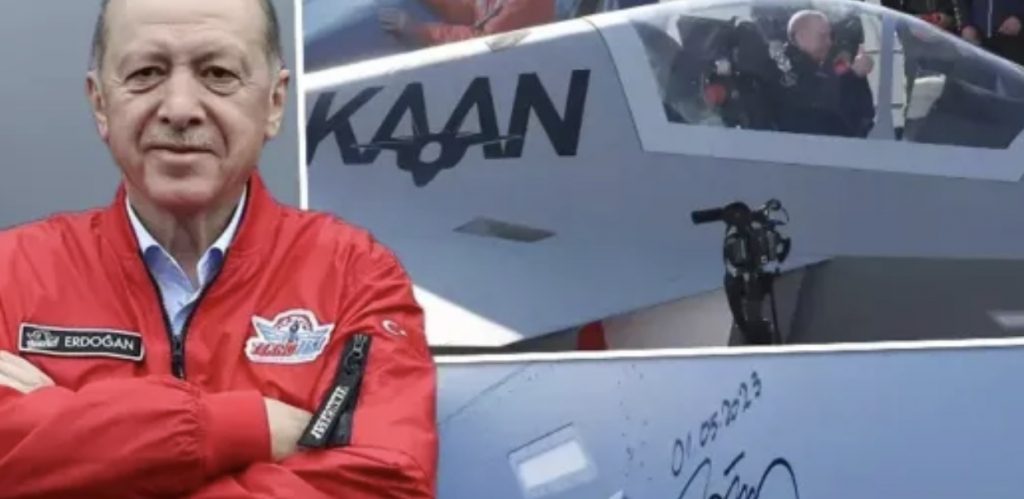Washington Invites Baykar to Build in America, Resetting U.S.–Türkiye Defense Ties
WASHINGTON / İSTANBUL — The United States has asked Turkish drone giant Baykar to localize production on American soil, a move that could recast defense-industrial ties between Washington and Ankara and open new avenues for Turkish-American business, according to statements by Foreign Minister Hakan Fidan and multiple reports. Speaking in New York during UN week, Fidan said U.S. officials explicitly invited Baykar—maker of the TB2, Akıncı and next-gen Kızılelma—to establish a manufacturing presence in the U.S., arguing America could benefit from the company’s “advanced technology” while strengthening cooperation with a NATO ally.

The request caps a striking turnabout. The U.S. pioneered combat drones from the Vietnam-era Firebee through the Predator and Reaper, yet export controls and slow procurement cycles left space for faster, cheaper rivals. Baykar filled that gap with iterative engineering and wartime performance from the South Caucasus to Ukraine, transforming itself into one of the sector’s most influential players. The EurAsian Times—in an opinion piece—framed Washington’s outreach as “history coming full circle,” noting Fidan’s on-record remarks about U.S. interest in a Baykar plant.
Behind the diplomacy sits hard industrial math. The Pentagon and U.S. allies want large numbers of attritable, networked UAVs at lower cost and on faster timelines. Localizing Baykar platforms inside the U.S. would diversify supply beyond a handful of primes, shorten logistics chains, and align with Washington’s friend-shoring push. For Ankara, a U.S. footprint would anchor Turkish technology in the world’s biggest defense market, reduce licensing risk, and deepen political buy-in for platforms already proven in combat. Daily Sabah
Baykar is positioning for exactly this kind of scale. The company is investing $300 million to bring jet and turboprop engines in-house—key for the Akıncı and the jet-powered Kızılelma—and says its Ukraine factory is nearing completion. In Europe, Baykar and Italy’s Leonardo have announced a joint venture to build UAVs for a market worth tens of billions over the next decade. Together, these moves shift Baykar from a single-platform exporter to a systems company integrated across airframes, propulsion and European production lines. Reuters+1
For Turkish-American readers, the stakes are immediate. A U.S. plant would mean contracts for machine shops, avionics suppliers, software firms, test ranges, and logistics providers across states competing for advanced manufacturing jobs. It would also connect Turkish university labs and startups to U.S. research ecosystems, making two-way talent and capital flows more resilient than the political cycle. Baykar’s executives have publicly underlined their mass-production capacity and ambition to ramp TB2, Akıncı, TB3 and Kızılelma lines—signals U.S. state development agencies and local suppliers are already watching. Atlantic Council
The path, however, runs through Washington’s rulebook. Any localization would require a clear framework on ITAR/EAR export controls, cybersecurity, intellectual property, end-use monitoring and separation between U.S. and non-U.S. configurations. Congress will scrutinize compliance especially closely after recent investigations into alleged arms transfers in conflict zones, which Baykar and Turkish officials have criticized as disinformation. Whether fair or not, the political durability of a U.S. plant will hinge on best-in-class compliance and verifiable safeguards. The Washington Post+1
Industry voices also see strategic upside for NATO. A localized Baykar line would accelerate deliveries to allies, improve interoperability under shared standards, and relieve pressure on stretched U.S. munitions and UAV inventories. For Ankara, the move would complement the Leonardo venture and the Ukraine facility, giving Turkish platforms a tri-continental production footprint that is harder to disrupt and easier to finance. Analysts note that such a network dovetails with the transatlantic push to harden supply chains against shocks from great-power competition. Reuters
What happens next will look less like a headline and more like a checklist: formal U.S. invitations, a site-selection process with state incentives, anchor orders to justify tooling, and a compliance architecture that satisfies congressional skeptics while keeping Baykar’s rapid iteration intact. If those pieces fall into place, the Baykar invitation could become the most consequential U.S.–Türkiye industrial link in years—one that creates jobs in American communities, locks in Turkish innovation, and gives NATO a deeper bench in the drone era. If not, the opportunity may drift back overseas, with Europe and Ukraine capturing the expansion.
